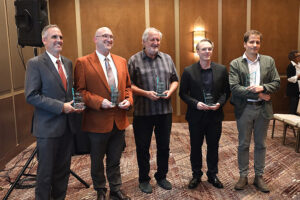AUSTIN, Texas — The University of Texas at Austin’s executive vice president and provost has issued a final report regarding a Nov. 13, 2015 incident at which members of a Palestinian student group demonstrated during an academic event hosted by the university’s Institute for Israel Studies.
The provost accepts the finding of the university’s Office for Inclusion and Equity (OIE) that the university faculty member who organized the event and responded to the students’ demonstration did not violate the university’s Nondiscrimination Policy and did not engage in harassment of the student organization.
The state’s open records laws prevent the university from publicly releasing certain information from investigations where the claims alleged are ultimately found to be unsubstantiated. A summary of the university’s investigation is available upon request.
Below is a statement from UT Austin President Gregory L. Fenves:
Now that the provost has accepted the findings of the OIE report, I want to express my strong support for Professor Ami Pedahzur.
Over many years, Dr. Pedahzur has fostered open, responsible dialogue, often on contentious political issues, including those involving Israel. He is known for working in a constructive and proactive manner with people from across the political spectrum. Dr. Pedahzur hosts speakers representing a wide range of views to foster in-depth inquiry. His classes attract students from diverse backgrounds. I look forward to Dr. Pedahzur’s many future contributions in teaching, scholarship, and public service at UT.
Free discourse is vital to The University of Texas. As a university committed to knowledge and discovery, UT is steadfast in its support of inquiry and debate. Yet free speech also carries with it responsibility. The expression of free speech is not a license to drown out the speech of others, or to shout down ideas one disagrees with. As the University of Chicago states in its “Principles of Free Expression,” a university “has a solemn responsibility not only to promote a lively and fearless freedom of debate and deliberation, but also to protect that freedom when others attempt to restrict it.” In this spirit, I appreciate Professor Pedahzur’s work to foster debate and protect freedom of speech for all, including the diverse students he teaches and the visiting scholars he hosts on campus.



